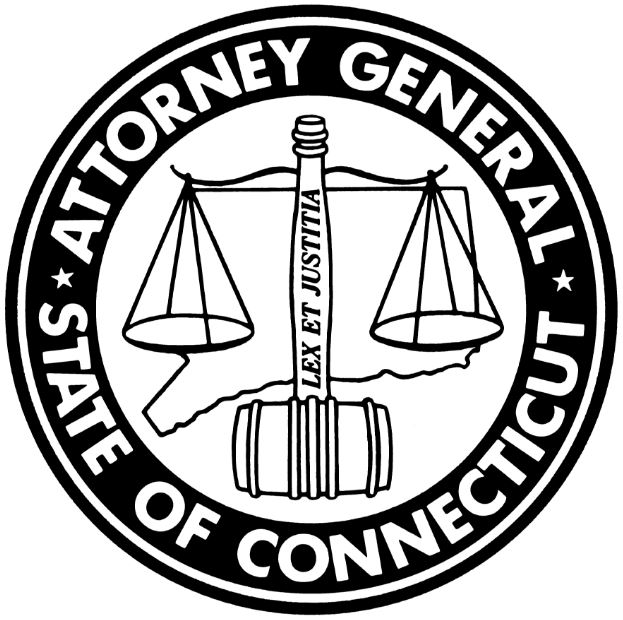
The state has initiated a lawsuit in Hartford Superior Court under the Connecticut False Claims Act alleging that a Fairfield County doctor and her husband, a University of Connecticut employee, engaged in a scheme designed to prescribe expensive medically unnecessary compounded medications to state employees enrolled in the state employee pharmacy benefit plan at a high cost to the state and its taxpayers, Attorney General George Jepsen said today.
The lawsuit stems from an investigation launched by the Office of the Connecticut Attorney General in 2014 after a request from State Comptroller Kevin Lembo, who administers the State of Connecticut Employee and Retiree Prescription Drug Plan.
"The allegations in this case involve a scheme to take advantage of the state's prescription drug benefit program by convincing state employees to try prescriptions for very expensive compounded drugs that are then prescribed by a doctor who never established a physician-patient relationship -- and who, in fact, never even met face-to-face with the patient," Attorney General Jepsen said. "This doctor utterly failed to adhere to even a minimal prudent standard of care and, therefore, this alleged conduct represents not only a serious abdication of her professional and ethical responsibilities but an egregious abuse of the prescription drug benefit plan and the taxpayer dollars that fund it. This investigation is ongoing, and my office will continue to work to hold accountable those who seek to defraud our taxpayer-funded healthcare programs."
Comptroller Kevin Lembo said, "I am grateful for Attorney General Jepsen and his team for today's action - part of a collaborative effort to protect the state plan from outrageous costs and protect employees from medically unnecessary and unregulated compound drugs. I immediately implemented a prior authorization measure that stopped a sudden and questionable surge in compound prescriptions, and then promptly referred the issue to the Office of the Attorney General for further investigation. The prior authorization requirement has continued to successfully control compound drug costs, and now today's legal action holds individuals accountable for allegedly taking advantage of patients and the state's pharmacy plan. We must continue to respect decisions by doctors and patients, while also safely shielding against these kinds of abuses."
The state's prescription drug benefit plan provides prescription drug coverage to eligible state employees, retirees and their families. The plan's guidelines require that prescriptions covered under the plan be "medically necessary" as determined by a licensed practitioner "in accordance with generally accepted standards of medical practice."
The state's lawsuit alleges that Kwasi Gyambibi – an employee of the University of Connecticut in Stamford – and his wife, Dr. Kakra Gyambibi, met on several occasions with a sales representative from Advantage Medical and Pharmaceutical, LLC (Advantage) and received marketing materials concerning compounded pharmaceutical preparations created and dispensed by Advantage. They were also provided with Advantage prescription pads that contained common formulations for the compounded pharmaceuticals created and dispensed by Advantage, the state alleges. Advantage's business model uses commission-based marketing representatives to market its products, including compound drugs.
Compounded pharmaceuticals, unlike mass-produced, manufactured pharmaceuticals, are made based on a practitioner's prescription in which individual ingredients are mixed together in the exact strength and dosage prescribed by the provider. They are not approved by the federal Food and Drug Administration.
The state alleges that, from June 2014 to at least March 2015, Mr. Gyambibi sought out and approached his coworkers and convinced them to try compound pharmaceutical prescriptions offered by Advantage for their health ailments. The state alleges that Mr. Gyambibi assured his coworkers that the compounded drugs were effective at treating their condition and that his wife, a doctor, would write the prescriptions for them. The state alleges that, once a coworker agreed to try the compounded drug, Mr. Gyambibi provided Dr. Gyambibi with the coworker's personal and prescription benefit card information. Dr. Gyambibi then wrote the prescription without examining the patient, and the prescription was submitted to Advantage, the state alleges.
Dr. Gyambibi did not create or maintain any records documenting the care she provided to any patient for whom she prescribed a compounded pharmaceutical, and there is no documentation of an initial examination, plan of care, treatment note or any other medical record to support the prescriptions for the compound pharmaceuticals that she wrote, the state alleges.
At the time of the alleged conduct, Dr. Gyambibi was employed by a physician group that provided hospitalist services for several hospitals in Connecticut; hospitalists primarily provide medical care to hospitalized patients. Dr. Gyambibi never wrote a single prescription for a compound pharmaceutical product for any of her hospitalized patients, the state alleges.
Further, the state alleges that a large number of the individuals for whom Dr. Gyambibi prescribed compounded pharmaceuticals never used the prescriptions, yet they received numerous and unsolicited refills based on the initial prescription written by Dr. Gyambibi – each costing the state thousands of dollars per refill.
The state alleges that the scheme led to several hundred thousands of dollars in false claims to be submitted to the state pharmacy plan for payment.
The state's investigation into compounded pharmaceutical manufacturers and providers is ongoing.
Anyone with knowledge of suspected fraud or abuse in the public healthcare system is asked to contact the Attorney General’s Antitrust and Government Program Fraud Department at 860-808-5040 or by email at ag.fraud@ct.gov; the Medicaid Fraud Control Unit in the Office of the Chief State’s Attorney at 860-258-5986 or by email at conndcj@ct.gov; or the Department of Social Services fraud reporting hotline at 1-800-842-2155, online at www.ct.gov/dss/reportingfraud, or by email to providerfraud.dss@ct.gov.
For more information on efforts to address fraud in state programs, please visit www.fightfraud.ct.gov.
Legal Investigator Thomas Martin and Forensic Fraud Examiner Kevin Jeffko, working under the direction of Assistant Attorney General Michael Cole, chief of the Antitrust and Government Program Fraud Department, are assisting the Attorney General in this case. Former Assistant Attorney General Natasha Freismuth assisted on this case.
C